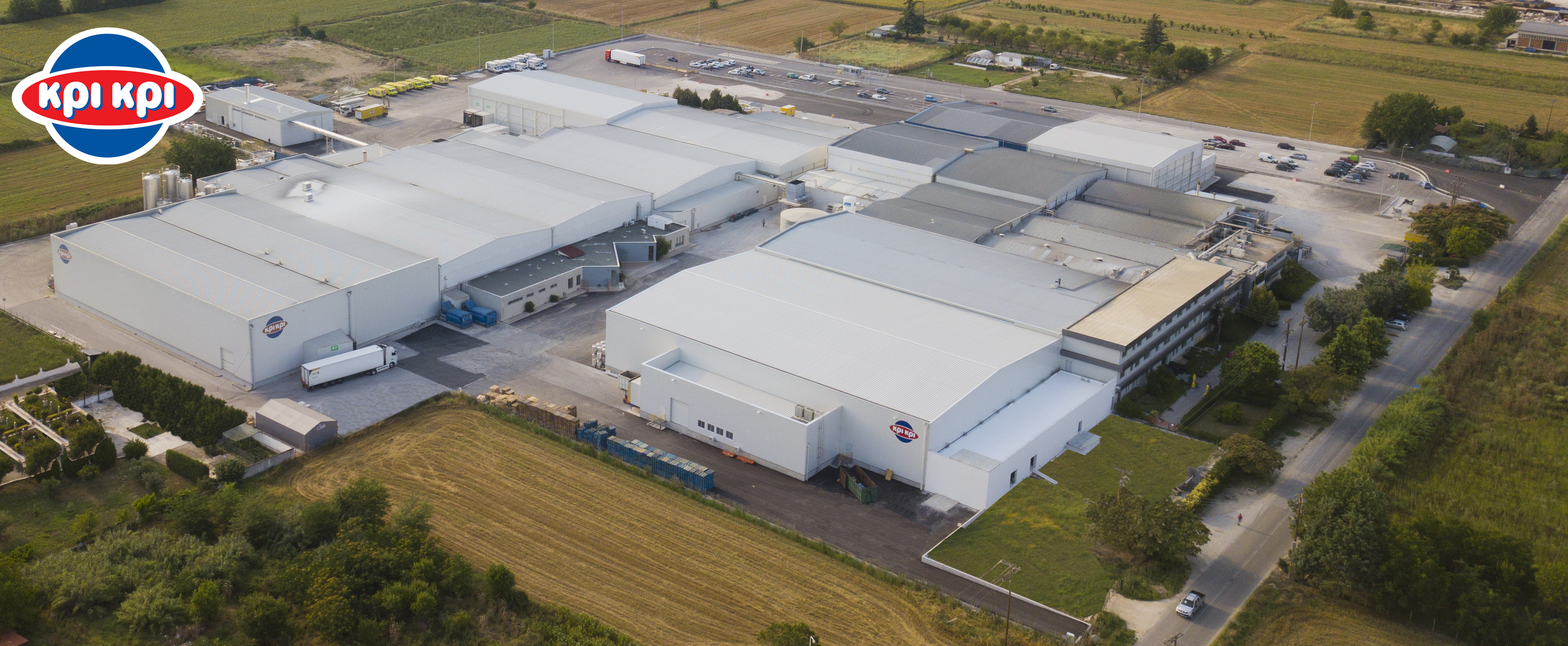
Greek dairy company Kri Kri is implementing an investment of 4.5 million euros for the creation of a state-of-the-art facility in the area of its other facilities in Serres, in the context of its transition to the cyclical model of Sustainable Development and Prosperity.
The unit will produce biogas using exclusively as a raw material the liquid waste of the ice cream and dairy plant as well as the whey resulting from the draining of yogurt. The produced biogas will then be led to the 998kW cogeneration unit. Electricity will be made available to the Hellenic Electricity Distribution Network Operator, while the generated heat will be utilized within the facilities, helping to reduce the use of natural gas.
The environmental benefits of the investment are projected to be manifold. The reduction of the annual CO2 emissions in the factory is estimated at 800 tons per year, due to the coverage of the thermal needs by 21%. The estimated annual production of clean electricity amounts to 7,500 MWh, which is the amount of energy required to meet the needs of more than 2,000 households. Finally, it is estimated that a reduction in consumption of 80,000 liters of oil per year will be achieved by stopping the transfer of whey by truck-tanks to third party units.
Furthermore, the investment is going to contribute significantly to the national economy, as well as to the local community of Serres since a significant number of new jobs will be created.
The President and CEO of Kri Kri, Panagiotis Tsinavos, said: “We at Kri Kri recognize that in order for our society to continue to grow and to ensure the adequacy of natural resources, a new economic growth model must be followed that will reduce waste, but will also reduce the need for new resources to be raised at great economic and environmental cost. In this context, we are creating the state-of-the-art anaerobic treatment plant, an investment of 4.5 million euros, which is going to bring multiple benefits not only for the company, but mainly for the environment and the national economy “.
Anaerobic treatment is the most technologically appropriate solution in the world for the management of agro-industrial waste, where the reduction of the pollutant load is achieved in an environmentally friendly way, with simultaneous production of biogas. Biogas is a clean and renewable energy source that helps fight climate change and global warming.
Latest News

BoG Figures Confirm Banner Year for Greek Tourism in 2023
20.6 billion euros in related revenues topped the previous year’s figure by 16.5%

Piraeus Bank to Propose First Dividend in 16 Years
Piraeus Bank has forecast profits of roughly 900 million euros this year, rising to one billion euros next year

Eurostat: Inflation in Greece Eases to 3.2% in April; 2.4% in Eurozone
The rate of increase for food prices was up by 4.9% in April 2024, compared to 4.8% in the previous month

ELSTAT Feb. Retail Turnover Drops by 3.8%, Sales Volume Plummets by 9.8%
Additionally, the seasonally adjusted General Volume Index for Feb. 2024 experienced a 3.8% decrease compared to the previous month of the same year

Greek Buyers Lead Return to Vacation Home Market
In the last six months, Greeks have made a surge into the vacation home market, notably without relying on loans

NBG Receives BBB Investment Grade by DBRS
This makes NBG the first Greek bank to regain Investment grade status, nearly 15 years after the onset of the Greek financial crisis

Greek Gov. Budget: Primary Surplus 3bln in Q1 2024
Value Added Tax (VAT) revenues reached 5.876 billion euros, down by 16 million euros compared to the target
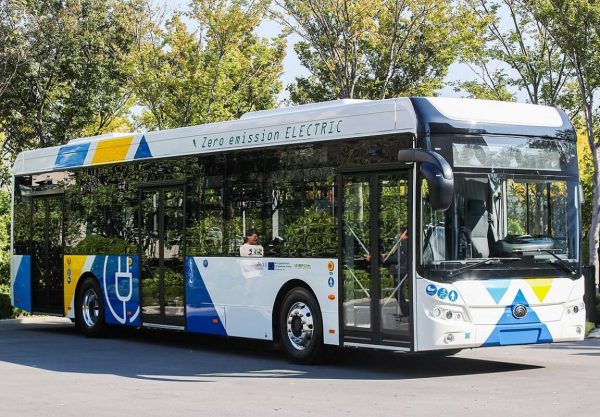
Athens’ Public Transport System Gets Green “Facelift”
The future of urban transport in Greece's capital city includes electrification, hydrogen, kinetic energy and even heighted security and monitoring through the use of drones

Athens Int’l Airport: 16.2% EBITDA Increase and 16.5% Passenger Growth in Q1 2024
Following the strong performance in the first quarter, the company revised its annual passenger traffic forecast for 2024 to 29.9 million passengers, a 6.3% increase (or roughly 1.8 million passengers) from 2023 levels.

Oxford Economics Report: Greek Economy is Just Below Risk Zone
However, the report points to a persistent challenge in the form of commercial credit risk, which remains high at 8 out of 10, ranking Greece 104th internationally















![Τουρισμός: Πόσα ξόδεψαν και πόσο έμειναν οι ξένοι επισκέπτες το 2023 [πίνακες]](https://www.ot.gr/wp-content/uploads/2024/02/ot_tourist_santorini2-90x90.png)

![ΤτΕ: Το top10 των περιφερειών με τα περισσότερα τουριστικά έσοδα [πίνακες]](https://www.ot.gr/wp-content/uploads/2024/04/02tourismos10-1-90x90.jpg)











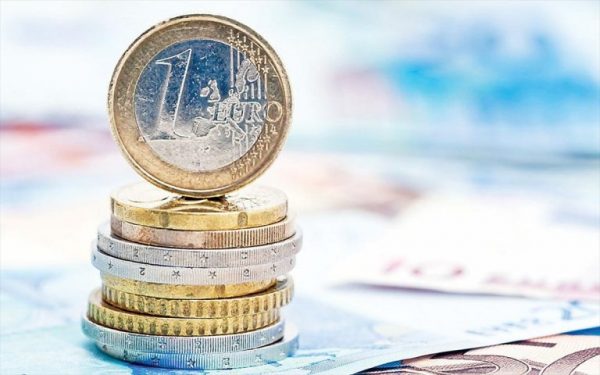




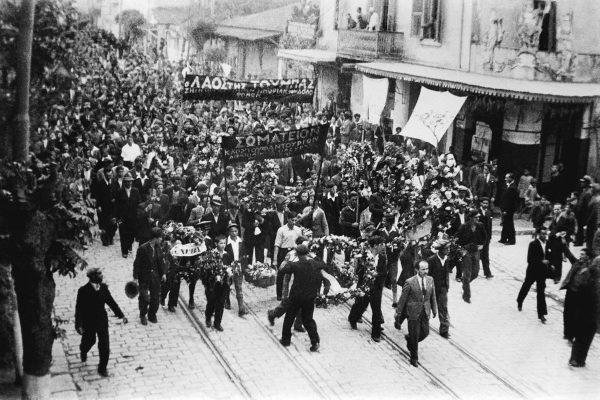


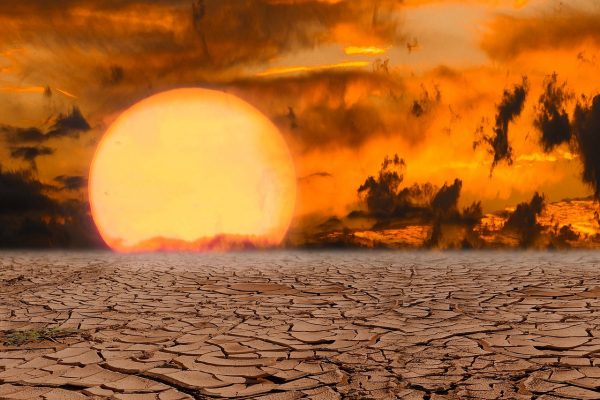




![Τουρισμός: Πόσα ξόδεψαν και πόσο έμειναν οι ξένοι επισκέπτες το 2023 [πίνακες]](https://www.ot.gr/wp-content/uploads/2024/02/ot_tourist_santorini2-600x352.png)

 Αριθμός Πιστοποίησης Μ.Η.Τ.232433
Αριθμός Πιστοποίησης Μ.Η.Τ.232433